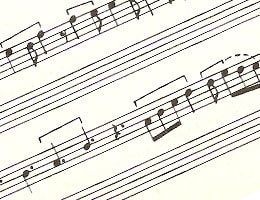 The etymology of clause takes us back to the Latin word clausŭla , which derives from clausus (a term that can be translated as “closed” ). Clauses are the provisions that are part of a will , a contract or other type of document.
The etymology of clause takes us back to the Latin word clausŭla , which derives from clausus (a term that can be translated as “closed” ). Clauses are the provisions that are part of a will , a contract or other type of document.
For example: “We have not yet signed the strategic agreement since there is a clause that does not convince me,” “The contract signed by the Uruguayan player includes a clause that prevents him from playing against his former team,” “The government is studying the clauses of the free trade agreement .
A guarantee that is included in certain contracts is called a penalty clause . Through this clause it is agreed that, if one of the parties does not comply with the contract, they must pay compensation to the other.
An abusive clause is one incorporated into a contract by imposition of one of the parties, without negotiation and causing an imbalance in the obligations and rights of each party.
The idea of a barrier clause appears in the field of politics to refer to the minimum number of votes that an electoral list must obtain to access representation in the legislature or another body.
In the field of grammar and rhetoric , on the other hand, a clause is called the series of words that, in a single sentence or in several that are closely linked to each other, can express a judgment with syntactic autonomy and complete meaning.
In other words, the linguistic clause is the smallest portion of speech capable of conveying the entire idea independently, even out of context. It is the smallest independent syntactic constituent (that is, one or more words that act as a unit in a hierarchical structure) with the capacity to express a statement with complete meaning.
Music gives this term the meaning of a short piece that was used in medieval music and consisted of adding an interval to the voice of Gregorian chant, whether fourth, fifth or octave, as long as there is at least a pair of voices. in the opposite way .
In the musical clause, a superior voice was added to the tenor's voice that complemented it through the use of melismas , that is, a minimum of twelve notes for each syllable of text. The composition of these parts requires an increase in speed and the writing of short rhythmic designs that repeat throughout the clause. When the top line has a speed considerably greater than that of the tenor and counterpoints it, it is called "discanto."
 At the beginning of the 13th century, there was an enrichment of the cadenza and the clause was used above all in the so-called School of Notre Dame , a group of musicians dedicated to working in the cathedral of the same name, in Paris, as well as in its surroundings from the end. from the 12th century to the mid-13th century.
At the beginning of the 13th century, there was an enrichment of the cadenza and the clause was used above all in the so-called School of Notre Dame , a group of musicians dedicated to working in the cathedral of the same name, in Paris, as well as in its surroundings from the end. from the 12th century to the mid-13th century.
For logic , clauses are expressions composed of a finite series of formulas known as literals , which are true when at least one literal is true.
After the Civil War, several amendments to the United States Constitution took place; Among them is the Fourteenth, within which we can find the Equal Protection Clause , which protects people against the denial of their rights, on the basis of the equality of all citizens.
A model contract that has a single clause is known as the Butterfly Clause , which guarantees the right of computer program developers to effectively oppose States taking advantage of their creations to violate Human Rights .
